Legal States for Cannabis Seed Sales
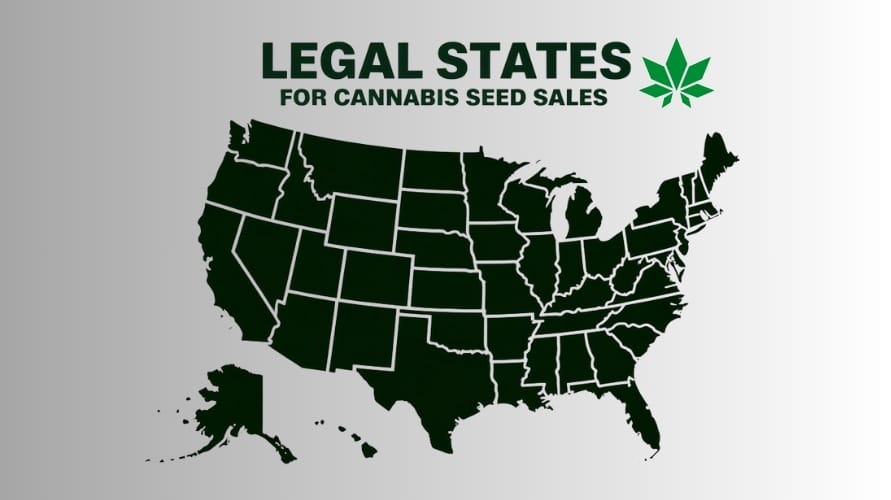
The cannabis industry is evolving rapidly, and one area of particular interest is the sale of cannabis seeds. Whether you’re a home grower, a commercial cultivator, or simply curious about the legal landscape, understanding which states allow cannabis seed sales is crucial. This guide explores the laws governing cannabis seeds in the United States, breaking down the specifics state by state and providing clarity on this complex topic.
Why Cannabis Seed Sales Are Important
Cannabis seeds are the foundation of cultivation. Whether you’re growing for personal use, medical purposes, or large-scale commercial operations, seeds determine the genetics, yield potential, and quality of your plants. The sale of cannabis seeds, therefore, plays a vital role in the industry.
As legalization spreads, consumers and growers alike are finding it easier to access seeds. However, not all states have embraced cannabis in the same way, and laws regarding seed sales can vary dramatically. Let’s take a closer look at the states where cannabis seed sales are permitted.
States That Allow Cannabis Seed Sales
The United States is a patchwork of cannabis laws, with each state establishing its own regulations. Below, we explore the legal status of cannabis seed sales in states where they are permitted.
States With Full Legalization
States with full legalization allow both medical and recreational cannabis use, often including the sale and possession of cannabis seeds. Here’s a breakdown of these states:
- California: As one of the first states to legalize cannabis for medical use (1996) and later recreational use (2016), California is a hub for seed sales. Seeds can be purchased from dispensaries, seed banks, and online retailers.
- Colorado: Known for its progressive cannabis laws, Colorado allows adults to purchase seeds for personal cultivation. Dispensaries and online retailers are common sources.
- Oregon: Oregon’s legal framework includes cannabis seed sales, with many licensed dispensaries offering seeds alongside other products.
- Washington: While Washington allows home cultivation for medical patients, recreational users can also purchase seeds, primarily through licensed dispensaries.
These states typically have robust markets for cannabis seeds, with a wide variety of genetics available to consumers.
States With Medical-Only Legalization
Some states permit cannabis seed sales exclusively for medical purposes. Patients with qualifying medical conditions can often buy seeds to grow their own medicine. Key states include:
- Arizona: Medical patients can purchase seeds and cultivate a limited number of plants if they live more than 25 miles from a dispensary.
- New Mexico: With its medical cannabis program, New Mexico allows patients to grow cannabis from seeds purchased at licensed facilities.
- Minnesota: Although Minnesota’s medical cannabis program is limited, patients can legally possess seeds for cultivation.
In these states, the focus is on providing access to patients who rely on cannabis for therapeutic purposes.
States With Limited or Emerging Legalization
Some states are in the process of expanding their cannabis laws, creating gray areas for seed sales. These include:
- New York: Legalization in New York has opened the door to recreational cannabis, including seed sales, but the market is still developing.
- New Jersey: With adult-use cannabis legalized, seed sales are expected to grow as the industry matures.
- Connecticut: Recreational cannabis laws include provisions for home cultivation and seed sales, set to fully roll out by 2024.
In these states, it’s essential to stay updated on evolving regulations, as legal frameworks can change rapidly.
Federal Law and Cannabis Seeds
While many states have legalized cannabis in some form, federal law still classifies cannabis as a Schedule I controlled substance. This creates complications for cannabis seed sales, especially when they involve interstate commerce.
Interestingly, cannabis seeds are often classified as hemp under federal law, as long as they contain less than 0.3% THC. This loophole has enabled some seed banks to operate on a national level, shipping seeds across state lines. However, this practice remains legally risky and is subject to ongoing legal scrutiny.
Tips for Buying Cannabis Seeds Legally
Navigating the cannabis seed market can be challenging, especially with varying state and federal laws. Here are some tips to ensure your purchases are legal and secure:
- Research State Laws: Before buying seeds, check your state’s specific regulations on cannabis cultivation and seed sales.
- Choose Licensed Sellers: Purchase seeds from licensed dispensaries or seed banks to ensure compliance with state laws.
- Keep Receipts: Always retain proof of purchase to demonstrate the legality of your seeds, especially if you’re questioned by authorities.
- Understand Plant Limits: Many states impose limits on the number of cannabis plants you can grow. Ensure your seed purchases align with these restrictions.
Challenges in States Without Legalization
In states where cannabis remains illegal, buying and selling seeds is prohibited. However, some residents of these states purchase seeds online from out-of-state sellers. While this is technically illegal, enforcement varies, and some buyers rely on the federal hemp loophole mentioned earlier.
For those living in prohibition states, it’s crucial to understand the risks involved and to advocate for legislative change to expand access.
The Future of Cannabis Seed Sales
As cannabis legalization continues to spread, the market for seeds is expected to grow exponentially. Here are some trends to watch:
- Increased Federal Clarity: As more states legalize cannabis, pressure is mounting for federal reform. Clearer guidelines on seed sales and interstate commerce would benefit consumers and businesses alike.
- Expansion of Home Cultivation Rights: Many legalization efforts include provisions for home cultivation, which would increase demand for seeds.
- Advancements in Genetics: Breeders are constantly developing new strains with improved yields, potency, and disease resistance, making high-quality seeds more accessible.
Ethical and Sustainable Seed Sourcing
When purchasing cannabis seeds, it’s important to consider not only legality but also ethics and sustainability. Here are some factors to keep in mind:
- Support Local Breeders: Whenever possible, buy seeds from local breeders to support your community and reduce the environmental impact of shipping.
- Choose Sustainable Packaging: Look for seed banks that use eco-friendly packaging materials.
- Prioritize Quality: High-quality seeds lead to healthier plants and better yields. Invest in reputable brands with a track record of excellence.
Legal States for Cannabis Seed Sales: Conclusion
Cannabis seed sales are a cornerstone of the industry, enabling growers to cultivate their own plants and contribute to the broader cannabis ecosystem. While laws vary significantly across states, understanding the legal landscape is key to making informed decisions.
Whether you live in a state with full legalization, medical-only provisions, or emerging laws, there are opportunities to engage with the market responsibly. As the industry evolves, consumers and advocates must continue pushing for fair and accessible policies that benefit all stakeholders.
By staying informed and supporting ethical practices, you can play a role in shaping the future of cannabis cultivation and seed sales.
Now that you understand how to buy marijuana seeds legally, shop the complete collection of regular, feminized, and autoflower cannabis seeds and clones at Seeds Here Now.
Suggested Articles
;)
;)
;)



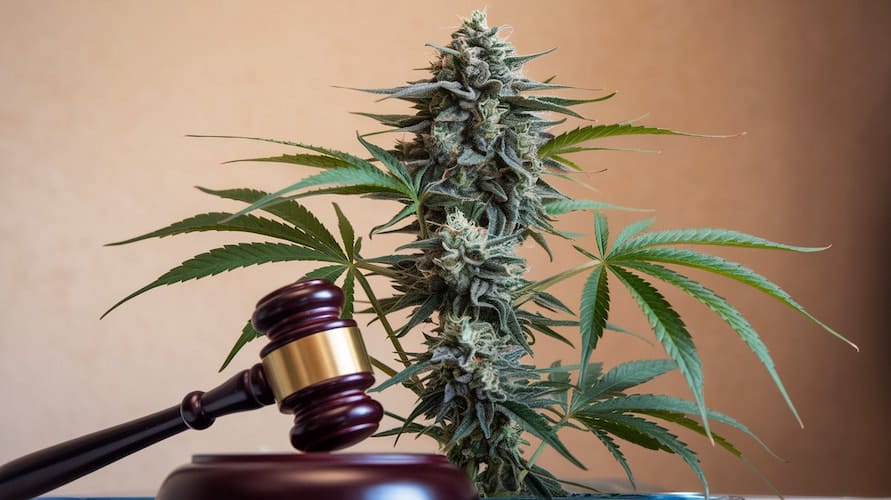
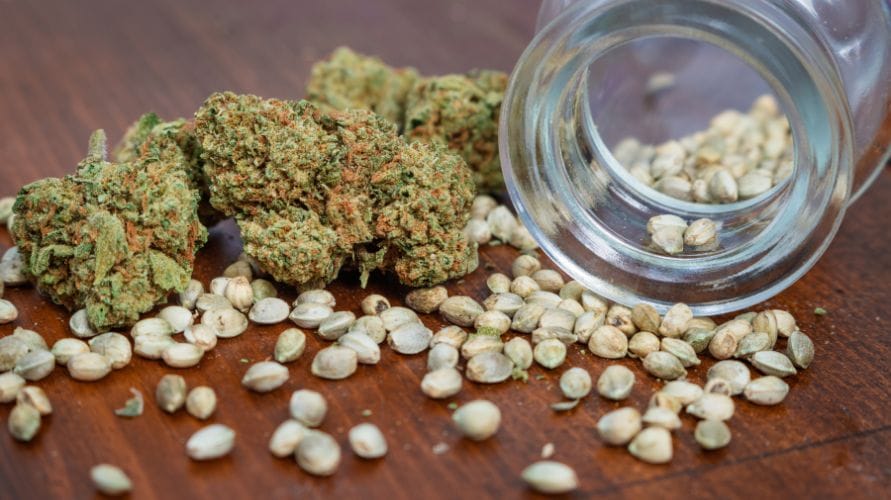
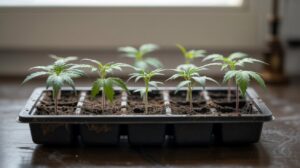
 14 Jul 2025
14 Jul 2025  5 min read
5 min read

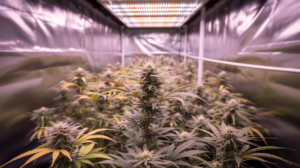
 January 08, 2025
January 08, 2025 


RESPONSES (0)
No responses yet. Be the first to respond!